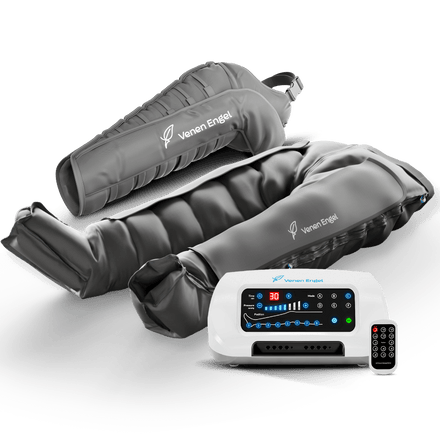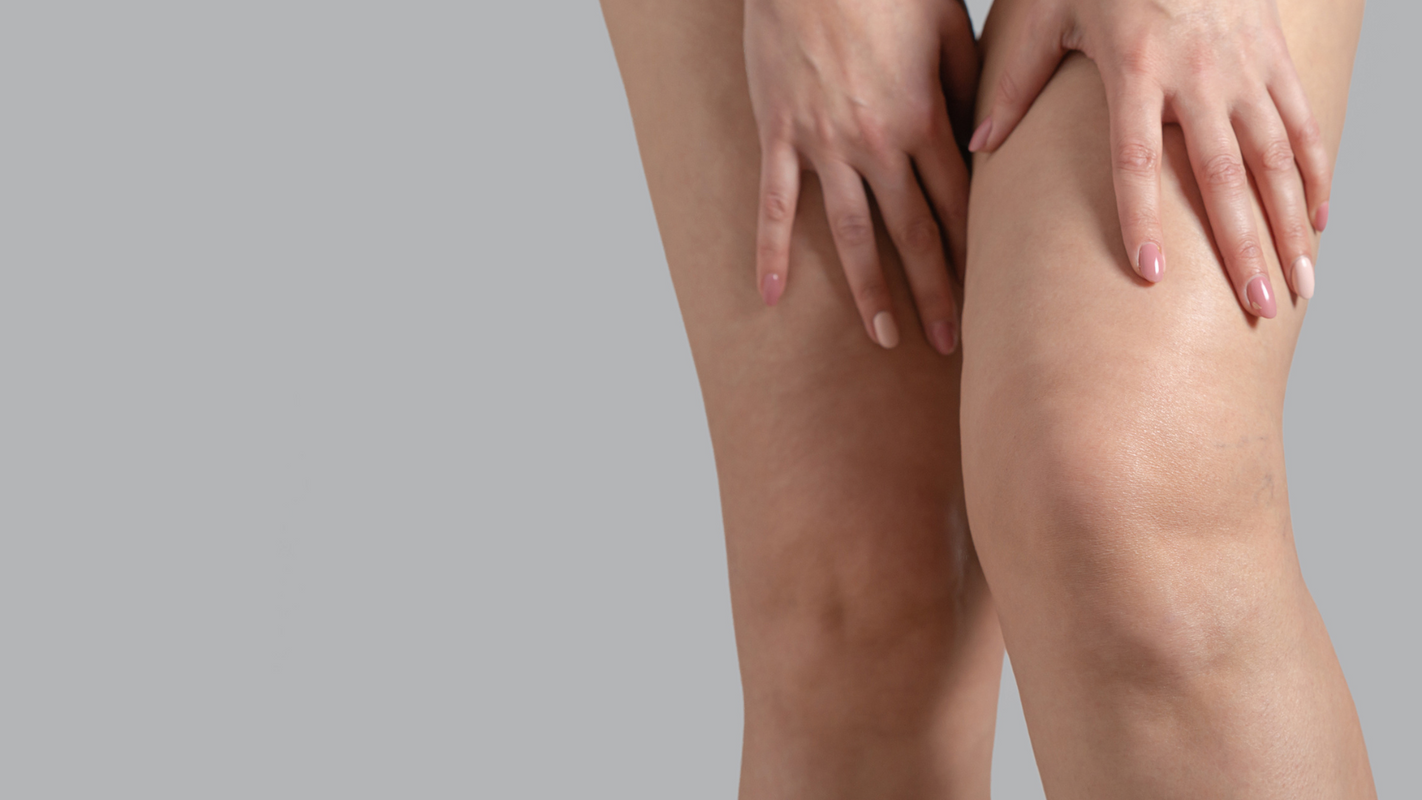Do you know the feeling when you come home after a long day and your legs feel feel like they are made of lead? Or when you wake up in the morning and wonder how you only should get up because your legs are so heavy and sluggish? You are certainly not alone with these Sensations.
Heavy legs are a widespread phenomenon that affects people of all ages and lifestyles applies, regardless of whether they lead an active or rather sedentary lifestyle. In this In this article, we want to provide an insight into the topic to give you a deep understanding of the Causes, symptoms, and effective immediate tips for relieving heavy legs
Causes of Heavy Legs: A Closer Look
Heavy legs can have various causes and often it is a combination of several Factors that cause your legs to feel heavy and tired. Here are the most common ones Reasons for this phenomenon:
Long periods of standing or sitting: Are you someone who spends most of the day sitting or standing spend, whether due to your profession or your daily routines? Then this can be a Cause of heavy legs. The prolonged staying in one position, especially in the Standing or sitting can slow down blood flow in the legs. This slowed Blood flow often leads to feelings of heaviness and stiffness in the legs.
Overweight: Overweight can also lead to heavy legs. In the case of overweight, it is necessary your leg muscles carrying more weight, which leads to additional strain. This can lead to faster fatigue of the muscles and thus lead to a feeling of heaviness in the legs.
Venous diseases: Venous diseases are another common cause of heaviness Legs. In these conditions, the blood does not flow efficiently back to the heart, leading to Can lead to congestion, swelling, and a feeling of heaviness in the legs. Typical Venous diseases include varicose veins and chronic venous insufficiency, for example.
Lymphedema: Lymphedema is an accumulation of lymph fluid in the legs that can lead to swelling and a feeling of heaviness. This may be due to an underfunction of the may be due to the lymphatic system, leading to a backlog of lymph fluid and thus to leads to a feeling of heaviness in the legs.
Lipödem: Lipödem is a chronic disease characterized by an unusual Fat distribution in the legs is characterized. This fat distribution can cause a feeling of heaviness and cause pain in the legs. In the case of lipedema, the affected areas often sensitive to pressure and slight bruising may occur. The exact cause the cause of lipedema is not yet fully understood, but it is believed that hormonal Factors and genetic predisposition can play a role. Regardless of the cause lipedema can significantly affect daily well-being and a require professional medical care.
In-depth examination of the symptoms of heavy legs
The symptoms of heavy legs can vary in intensity and affect manifest in different ways. They range from a simple feeling of heaviness in the legs to lead to pain and swelling. Every person can experience these symptoms differently and they can vary from day to day. Here are some of the most commonly reported symptoms:
Heaviness in the legs: This is the main characteristic of heavy legs. You can Feel like your legs are heavy and sluggish, almost as if they were cast in concrete. Sometimes it can be difficult to describe this feeling, but many people say, that they feel their legs slow them down when walking or moving.
Swelling: Swelling is another common symptom of heavy legs. Your Legs may swell, especially after standing or sitting for a long time. This Swelling can be both painful and uncomfortable, and the feeling of Intensify the severity.
Pain or Discomfort: Pain and discomfort in the legs can also be a Symptom of heavy legs. You might feel a stabbing, pulling, or even burning Feeling in your legs, especially when moving or walking. These pains can sometimes also spread to the feet
Tiredness or exhaustion: The heaviness in the legs often goes hand in hand with a feeling of general tiredness or exhaustion. You may feel that you have less energy than usual, and you might feel exhausted by the end of the day feel, even if you weren't particularly physically active.
Practical Immediate Tips for Relieving Heavy Legs
If you see yourself in these descriptions and suffer from heavy legs, I want to give you some immediate steps you can take for relief:
1. Movement: Movement is an important factor in alleviating heavy legs. Regular, moderate exercise helps improve circulation in the legs and can reduce the feeling of heaviness. Try to incorporate more movement into your daily routine, such as walking instead of driving, or trying exercises that specifically target the legs, like swimming or cycling. Additionally, exercising in nature has the added benefit of calming your mind and reducing stress.


Elevate Legs: Another tip is to elevate your legs. If possible, prop your legs up, for example on a pillow or an elevation. This promotes the return of blood to the heart and can reduce swelling and heaviness.
Hydration and Nutrition: Adequate fluid intake and a healthy diet can also help alleviate the feeling of heaviness in the legs. Drink enough, preferably water or unsweetened teas, to keep your body well hydrated. Also, pay attention to a balanced diet. Foods rich in magnesium and potassium, such as bananas, avocados, and dark leafy greens, can be particularly helpful. These minerals contribute to normal muscle function and can thus help relieve pain and feelings of heaviness in the legs.


Massage and Stretching: A gentle massage or stretching of the legs can also help relieve pain and improve circulation. You could try a self-massage by massaging your legs with circular movements, or you could try simple stretching exercises to loosen the muscles in your legs. If you're unsure how to do this best, you could consult a physiotherapist who can show you specific exercises.
5. Appropriate Clothing and Shoes: The choice of your clothing and shoes can also have an impact on the feeling in your legs. Avoid clothing and shoes that could restrict blood flow in the legs. Tight-fitting pants or high heels can impede blood flow and lead to swelling and pain. Instead, choose loose-fitting clothing and comfortable shoes that provide your feet with enough space and support a natural posture.

Heavy legs can be a challenge, but there are many practical measures you can you can take to alleviate the symptoms and improve your well-being. Remember, that it is important to listen to your body and take time for rest and recovery. And don't forget: You are not alone. There are many people who have similar experiences, and it provides help and support. Do not hesitate to consult a doctor if you have concerns or if the symptoms are severe or worsen. Your health and well-being are the most important.
Comprehensive strategies for long-term alleviation of heavy legs
In addition to the immediate tips for relieving heavy legs, there are also several long-term strategies, that can help you control your symptoms and improve your quality of life. These Solutions may require a little more time and commitment, but they can really make a Make a difference and help you feel better in the long run.
Weight Loss: If being overweight is one of the factors contributing to your feeling heavier Legs contribute, a healthy, steady weight loss could be an effective strategy. Overweight can put additional pressure on the legs and lead to fatigue and lead to swelling. Through a balanced diet and regular exercise, you can lose weight in a healthy way and reduce the pressure on your legs. But remember that it is important to set realistic goals and be patient with yourself. A Sustainable weight loss is a process that takes time.
Regular physical activity: Another long-term strategy for relief Regular physical activity is important for heavy legs. Consistent exercise can help to Strengthen leg muscles, improve circulation, and reduce the feeling of heaviness in the try to find an activity that you enjoy and that you whether you want to practice regularly, be it hiking, dancing, yoga, or cycling. Even Short walks can make a big difference!
Medical treatment: In some cases, heavy legs can also be more serious Underlying causes such as venous diseases, lymphedema, or lipedema. in these cases, medical treatment may be necessary. It is important to be open with talk to your doctor about your symptoms to find the most suitable Finding treatment for you. This could be a special therapy, medication, or in may even involve surgery in some cases.
You are not alone
In conclusion, we want to tell you that it is perfectly okay to sometimes tired and hard to feel. Our bodies are not perfect and they constantly go through Changes and challenges. It is important to listen to their signals and respond accordingly. to care for. If your legs are heavy and tired, they need rest and care.
With the tips and strategies presented here, we hope you find ways to give your legs the to provide necessary relief. Although it may seem overwhelming, there are many Ways to take control of your well-being and make positive changes in to effect in your life. You are not alone in this process. There are countless people who have had similar experiences and are ready to share their stories and solutions. In addition, health and wellness experts are available to assist you with the Be able to support you in overcoming your challenges.
Don't forget that it's perfectly okay to ask for help. Sometimes the exchange with others who have had similar experiences, or seeking a professional make a huge difference. You are strong and capable, and with the right tools and Support your body by providing the care and rest it needs.
Always remember that your journey is unique and you make progress every day. Every Every step you take on this path is a sign of your strength and commitment to your health and well-being. You are not alone on this journey, and there is always help and support when you need it.




